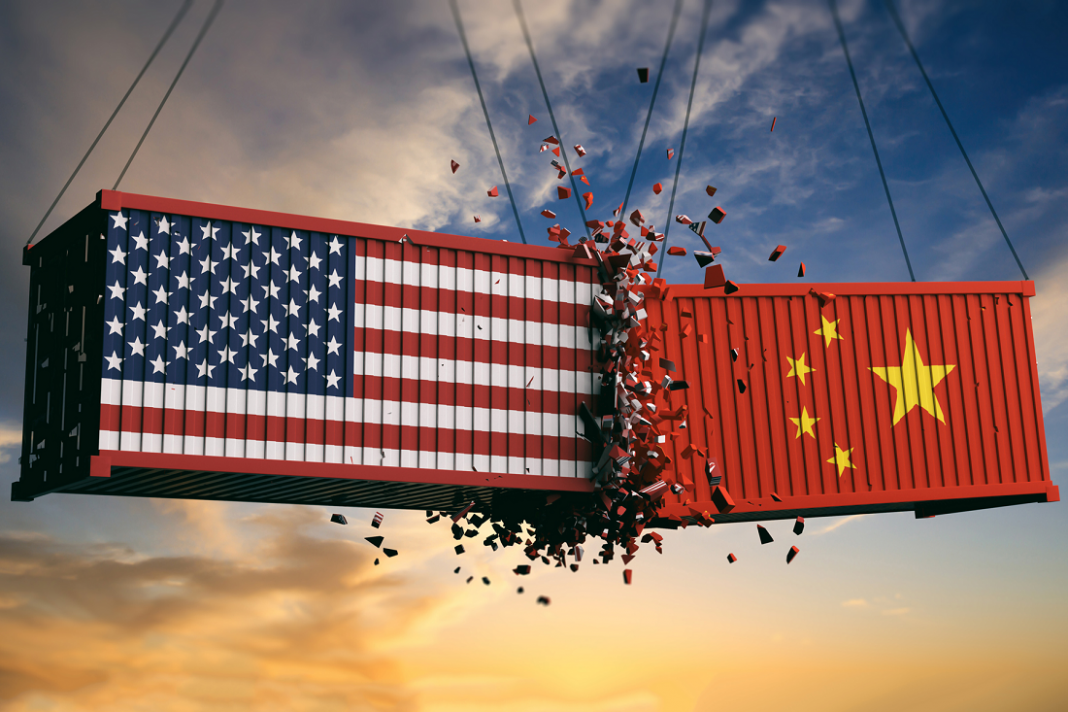US-China Trade War: Businesses the world over have certain interests that override partisan political stakes. Therefore, it is expected that businesspeople in both the U.S. and China have more commonalities than differences.
It is not surprising that more than 30 U.S. trade groups would call on their president to proactively approach China’s government in the simmering trade war between the two countries. In a letter written on Thursday to Treasury Secretary Janet Yellen and Trade Representative Katherine Tai, the trade groups appealed to President Joe Biden to reach out to China and resume negotiations on tariffs and close the Phase One Trade deal of 2020.
Both countries have maintained high tariffs on each other’s imports as they seek a favourable balance of trade. But the business groups comprising of diverse interests including Big Pharma, microchip companies and agricultural concerns noted that China had met its side of the bargain – “important benchmarks and commitments” – in the agreement.
China has also opened up its markets to U.S. financial institutions and reduced some regulatory barriers to U.S. agricultural exports to China. Such sentiments devoid of political undertones show a great deal of goodwill by the U.S. side.
In addition, recent revelations that Western companies or those of some of its closest allies were involved in misdeeds that the superpower has accused China of have led to a soul-searching and appeal for a rapprochement. A good example is the recent revelation that the Pegasus spy software owned by the Israeli cyber surveillance NSO Group was used for espionage purposes on a cross section of professionals and personalities in America.
Now, the U.S. has never come up with such concrete evidence against China’s alleged industrial espionage on American soil. The accusations, like those that have been levelled against global telecoms giant Huawei have been based on conjecture, jealousy and malice. It would not be possible for businessmen to make such a bold statement if they felt that their interests would be hurt in anyway, even through the backdoor!
It simply means that they have undertaken serious due diligence and have discovered that much of the U.S. allegations against its nemesis are politically motivated hot air. It is also clear that U.S. position as the leading global economic powerhouse revolves around China based value chain in both goods and services, without which the former’s products would be priced out of any market.
That the U.S. needs China more than vice versa is a factual statement. According to an article published in the American monthly trade publication Industry Week under a similar headline on April 6, 2018 “the U.S. depends heavily on China for providing the low-cost goods that enable income-constrained American consumers to make ends meet. The U.S. also depends on China to support its own exports; next to Mexico and Canada, China is America’s third largest and by far its most rapidly growing major export market.”
It seems America’s main agenda is to buy time and hope that something will force China to weaken its resolve
Furthermore, the U.S. depends on China to close its budget shortfalls and sustain its Treasury auction. China is the largest foreign investor in U.S. Treasury securities – about U.S. Dollars 1.3 trillion in direct ownership and another U.S. Dollars 250 billion of quasi-government paper. With a dearth of domestic saving, the U.S. desperately needs to rake in foreign saving from overseas.
Two high profile meetings between top government officials from both countries during Biden’s era, March in Alaska and Tianjin in July have not eased the stalemate due to America’s backstabbing in the guise of pushing for a hard bargain. Although the U.S. has made a myriad of accusations against China’s alleged hardline stance, it has not put anything concrete on the table for discussion. Instead of creating a common understanding, these two meetings have actually exacerbated the conflagration due to the superpower’s intransigence.
See Also >> China Is Shaking Up The Carbon Trading Market
It seems America’s main agenda is to buy time and hope that something will happen to force China to weaken its resolve, will or strength in the ongoing tug-of-war. But the second largest economy in the world has learned its lessons the hard way –once bitten twice shy. It will simply not enter into negotiations as a weak partner, which is the strategy to make it sell its geopolitical birthright.
Wisely, the American businesses did not make any political comments. They steered clear from the murky geopolitical waters, focusing on what they do best. The groups understand that the current imbroglio did not have to reach its current state, which has been caused by selfish politics.
Ultimately, the entire U.S. body politic needs an honest self-examination and redirect its anger within instead of searching for scapegoats to cover up its foibles. It does not need to create powerful enemies but seek cooperation in seeking solutions for its systemic shortcomings.
The writer is the Executive Director of South-South Dialogues, a Nairobi based research and development communication think tank.

